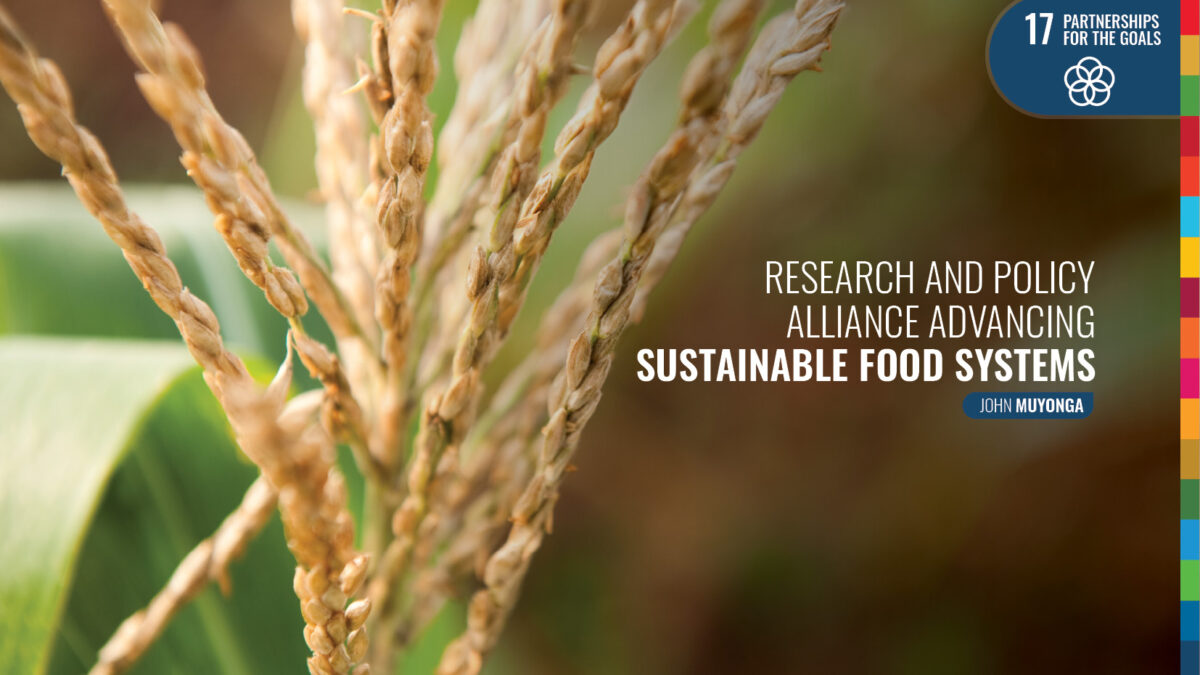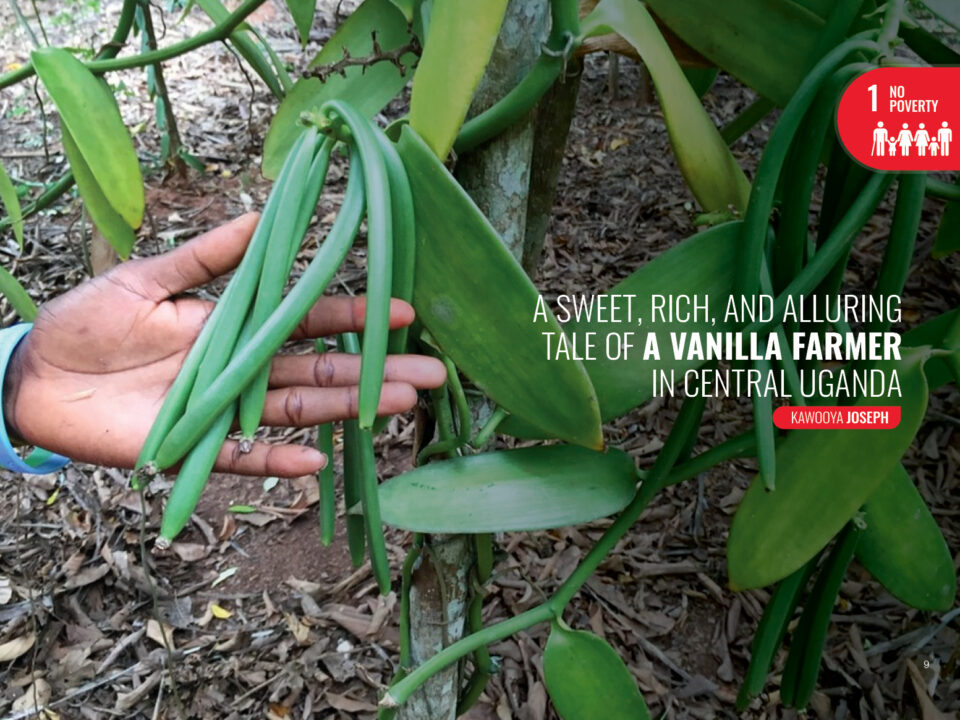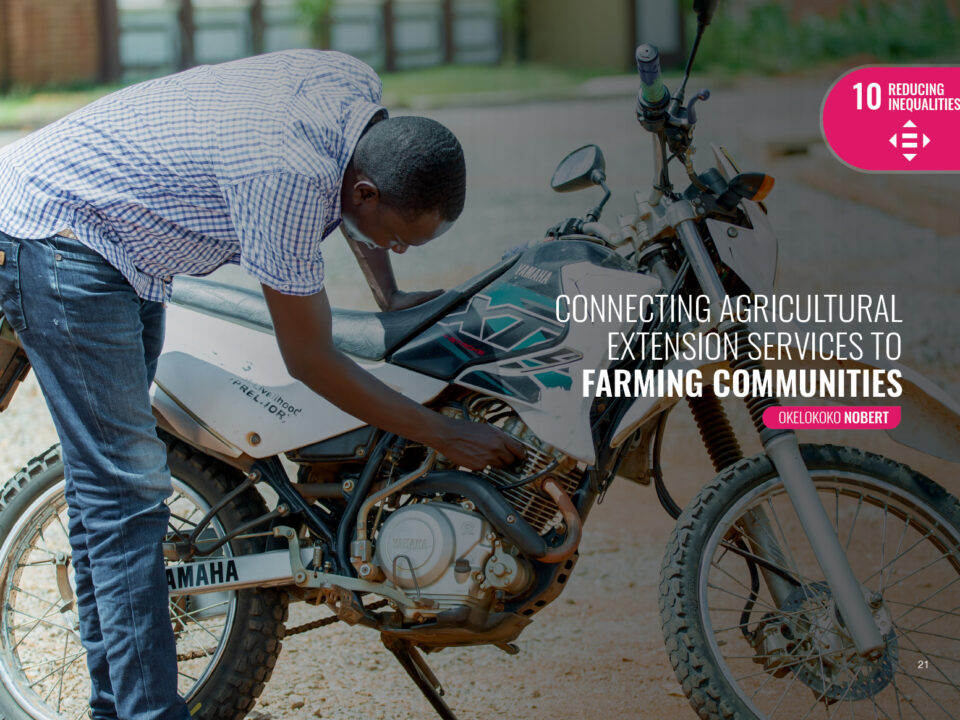Research and Policy Alliance Advancing Sustainable Food Systems
- Home
- Our Stories
- Impact Stories
- Research and Policy Alliance Advancing Sustainable Food Systems
John Mugonya, an agribusiness professional, had no idea that an orientation class at Egerton University in 2017 would have such an impact on his professional career five years later. TAGDev Organised student Orientation Weeks are critical in preparing students for life-changing events. Muyonga attended this orientation as part of his studies for a Master of Science in Agri-Enterprise Development at Gulu University through the TAGDev program, which led to him working in research institutions to better understand food system problems and find sustainable solutions.
Mugonya’s research interests are in food systems, specifically the theory of change and the necessary transitions to enable a food system transformation. This stems from his desire to have an impact on vulnerable communities suffering from food scarcity, malnutrition, and a lack of access to proper health care.
The covid-19 pandemic and the war in Ukraine demonstrate how the global food system is vulnerable. Shocks that disrupt supply and distribution chains cause widespread hunger and poverty, particularly in low-income African countries. Muyonga actively participates in studies aimed at facilitating food system transformation, and he believes that his research contributes to policy, research, and practice relevant to resolving Africa’s perplexing problems.
Mugonya co-developed the Business Readiness course in his current role as Programme Manager -Uganda at Agripreneurship Alliance to equip participants with basic business skills and knowledge needed to fully participate in and contribute to the economic life of their communities. This course focuses on the needs of actors in the African Micro and Small agri-food sector and contributes to a thriving ecosystem of businesses that generate wealth and employment, promote food and nutrition security, and respond to climate change challenges.
Muyonga is at the forefront of the Agripreneurship Alliance course delivery in Entrepreneurship in Agribusiness in ten Universities across five African countries to meet the needs of Technical Vocational Education and Training (TVET) institutions and business communities with low numeracy and literacy levels, as well as limited access to digital tools.
Muyonga expresses gratitude for the TAGDev scholarship opportunity, which has enabled him to become a better writer, communicator, and researcher. He has been able to demonstrate his leadership skills as the program manager, in Uganda while also providing for the welfare of his immediate family by applying these skills.
In collaboration with research institutions such as the International Crops Research Institute for the Semi-Arid Tropics, Muyonga’s research team conducted a study in 2021 to contextualize private sector-based seed system development for sorghum (ICRISAT). Localization and diversification of seed delivery channels in both formal and informal seed systems, promotion of sorghum-based product innovation to encourage private sector participation, and promotion of sorghum trade and consumption were all suggested.
In another study conducted by the World Food Program in Mogadishu, Somalia, the team developed a theory of change to support an index to assess transitions from emergency response to livelihood reconstruction. Currently, the team is working on indicators to help program managers make decisions about when and how to transition beneficiaries from emergency response to rebuilding livelihoods.
According to his observations, young people must have a can-do attitude. Many graduates lack a self-drive mentality. To position themselves for success, youth must use available resources such as internet connectivity and engage in “out of the box” activities. Patience and trustworthiness are two rare qualities in young people. Mugonya envisions himself leading a development-oriented Non-Governmental Organization in five years.
These Stories are a result of the documentation from the RUFORUM and Mastercard Partnership under the TAGDEV Project, Gulu University: https://ruforum.wordpress.com/category/tagdev-project/




